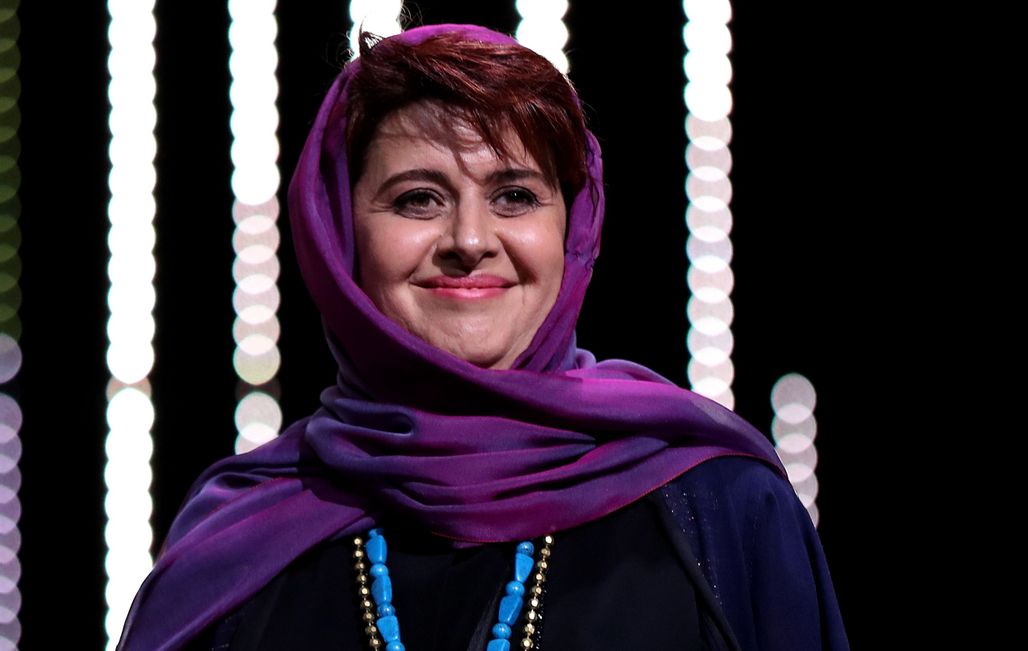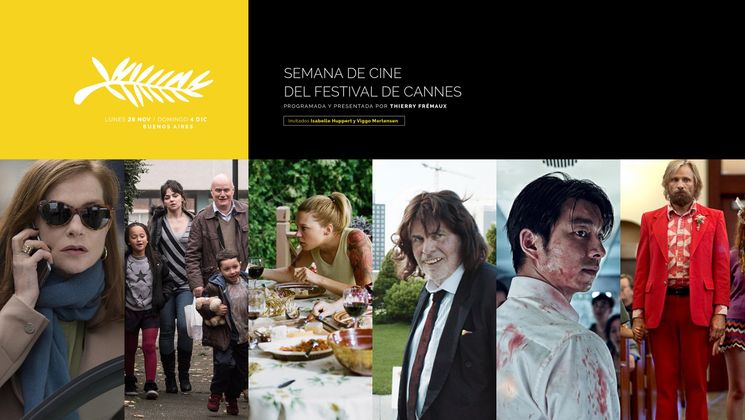
Interview with Katayoon Shahabi, member of the Feature Films Jury

Katayoon Shahabi has been a film producer since the age of 19 and has founded one of the two private film distribution companies in Iran. She has also worked with the great filmmakers of her country (Abbas Kiarostami, Asghar Farhadi, etc.). This independent woman is a real cinema enthusiast and was also the first one to go abroad for Iranian television. She is a member of the Feature Films Jury, and confides her first impressions about this new position that she has really taken to heart.
How have you taken on your role as a member of the Feature Films Jury?
I'm delighted and deeply honoured; after thirty years of working in the film industry, I see this invitation as a personal reward. It's a very enriching experience for me and I'm going to try and be a good jury member, to not let my personal feelings and tastes get in the way.
How would you describe the atmosphere within the 2016 Jury?
There's an excellent atmosphere! I immediately clicked with the other Jury members, and felt at home with them straight away. Even if we all come from different backgrounds and different professions in the film industry, our passion for cinema unites us. George Miller is doing a wonderful job, he's directing us but without showing it.
How do you choose the subjects you want to work on as a producer?
I like the realistic genre, and produce a lot of documentaries. I like films that make you think and make the audience work, I hate being passive in front of a screen. I'm particularly fond of social issues, and I speak about women a lot, even if I'm not really a feminist. I believe that it's my duty to use films to get a message across.
There are a lot of Iranian women who are actresses, and few who are producers. Why do you think this is?
Proportionally speaking, there are as many Iranian female producers as American, and all levels of the profession are concerned, editing, production, etc. There are a lot of women in the Iranian film industry.
Where can money be found to make a film in Iran?
I work mainly with TV channels or outside funds; they are always joint productions. It's very complicated for the film industry, especially if it's someone's first film or an independent film. So, the majority of directors with whom I work fund themselves, and the actors also invest: they don't get paid, but they receive a share of the profits generated by the film. Let's just say that we help one another.
As for documentaries, no Iranian channel buys them. It's almost impossible to obtain funding for the kind of film I work on. My last documentary, that dealt with the Iranians' reaction to Asghar Farhadi winning an Oscar, has been released but this is very rare. It was a great success.
People love cinema in Iran, is there a particular reason?
Iran is a real cinema-loving country. It's one of the few countries where you can see people queuing up outside the cinema to see a film. Tickets for our film festival, which takes place in winter, sell out immediately, despite the cold and the snow. People wait outside.
I think that this liking for cinema comes from Iran's history. Persian culture has poetic, literary, music and painting traditions. You can find a copy of the Koran in every Iranian home, but you can also find works by Hafez, the great Persian poet from the 14th century. Our contemporary art galleries in Teheran are fully booked for the next two years: Iran is really a young country that wants to express itself, and that has a lot of cultural and artistic production.
How do you take on your role as a producer?
I've set up my own film distribution company in Iran, called Noori Pictures, but I really feel the need to work on films at an earlier stage. Each year, I tell myself that I'll stop distributing films but there are only two international film distribution companies in Iran, and I can't help thinking "if I refuse to produce this film, what will happen?".
I always end up by giving in, as it upsets me. Take the example of Nahid by Ida Panahandeh (Un Certain Regard 2015); if I hadn't stepped in, the film wouldn't have been distributed. Even if I don't invest in films, I give advice, people come to me for that. In fact, I also work as a producer when I distribute films, as young directors lack experience.
Can you say a few words about the Festival?
The strength of cinema comes from the audience, and in this sense, I find the Festival de Cannes has really changed, with the importance of the Marché du Film. The Marché enables films to be shown, and films are made to be seen, that's the whole principle of the film industry.

